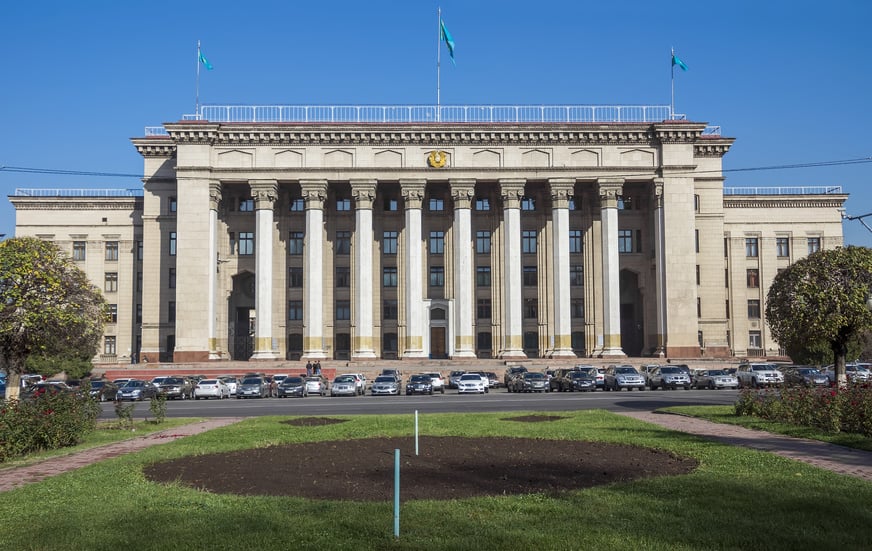The Republic of Uzbekistan has adopted its first law regulating public-private partnerships. [1] The PPP Law will enter into force on 12 June 2019.
Purpose of the PPP Law
The purpose of the PPP Law is to encourage the use of public-private partnerships (PPPs) in Uzbekistan by officially permitting and regulating their use.
Although long-term cooperation with the state was possible in various forms before adoption of the Law, it was quite complicated to formalize such cooperation and could require compliance with laws on public procurement, state-owned property, strategic assets and facilities and other laws. The PPP Law has standardized and simplified this procedure, which should help to attract investment to Uzbekistan.
The key provisions of the PPP Law are summarized below.
What is a PPP and a PPP Project under the Law?
While the Law’s definition of a PPP is vague, it appears to accept the commonly used meaning of that term: an arrangement between the state and a private party whereby they contribute and share their respective resources to achieve a common objective, quite often the construction and operation of a major infrastructure or other public works project.
Under the Law, PPP arrangements may be used for a project relating to design, construction, supply, financing, reconstruction, modernization, operation and maintenance of any assets in Uzbekistan, including infrastructure and industrial facilities (a PPP Project). Product sharing agreements and public procurements are outside of scope of the Law.
Therefore, the Law allows investors to consider PPP arrangements as a form of their long-term cooperation with the state for a wide range of projects. At the same time, it is not clear whether the state authorities will agree to enter into a PPP arrangement for such a broad range of projects.
PPP Development Agency
The PPP Law names the Uzbekistan PPP Development Agency (the PPP Agency), under the Ministry of Finance, as a main state authority responsible for implementation of the PPP Projects. Responsibilities of the PPP Agency include preparation of PPP guidelines and a model PPP contract, approval of tender documentation, and the monitoring of the implementation of PPP Projects. The PPP Agency also shall maintain a publicly available list of all announced PPP Projects.
While not entirely clear under the Law, it appears that the PPP Agency must approve the final draft of each PPP contract before it is executed.
Initiating and Awarding PPP Contracts
A PPP Project may be initiated either by a state authority and/or state-owned company acting on behalf of the State (Public Partner) or by an investor (Private Partner). A ‘cost’ is assigned to the concept of each PPP Project, although the PPP Law is not clear how it is determined. Depending on the ‘cost’ of the concept of the Project, the Law envisages different levels of approval. The concept of a PPP Project must be approved by:
- the respective Public Partner – if the Project cost does not exceed USD 1 million
- the PPP Agency – if the Project cost exceeds USD 1 million, but does not exceed USD 10 million
- the Cabinet of Ministers – if the Project cost exceeds USD 10 million
Information about a PPP Project initiated by either a Public Partner or a prospective Private Partner shall be published by the Public Partner on its official website and the website of the PPP Agency [2] to attract potential investors. In addition, information about the Project will be included in the Agency’s list of Projects.
The Private Partner generally should be selected through a tender (competitive bidding). But the PPP Law contains several exemptions allowing the selection of the Private Partner without a tender, such as where no other potential investors express an interest in the Project or where the Project is based on the use of IP rights or other assets exclusively owned by the Private Partner.
The duration of PPP contracts should be from three years to 49 years.
Benefits for PPP Projects
The Law provides numerous potential benefits for PPP Projects.
Very importantly, the Law contains a ‘grandfathering clause’ protecting Private Partners from adverse changes in the legislation for a period of 10 years from the date of the PPP contract.
A PPP Project may envisage following financial support from the state:
- subsidies, including ensuring a guaranteed minimum profit of the Private Partner under the Project
- contribution for implementation of the Project in form of assets and property
- state budget funds for payments for consumption or use of a certain amount of goods (works, services) produced or supplied within the Project
- allocation of state budget loans, grants, credit lines, etc.
- tax and ‘other incentives’
- state guarantee of the Republic of Uzbekistan
- other guarantees and/or ‘compensations’
Adoption of the PPP Law is a significant step in the promotion of PPP Projects and the attraction of foreign investors for major infrastructure projects. Nevertheless, many issues remain open under the Law. Hopefully they will be answered by the guidelines to be developed by the PPP Agency and without the need for significant amendments to the Law. As with any new law, however, the success of the PPP Law will depend to a large extent on how it is implemented by the state authorities.
[1] Law No. ZRU-537 ‘On Public-Private Partnership’ dated 10 May 2019 (the PPP Law or Law).
[2] See https://www.pppda.uz



